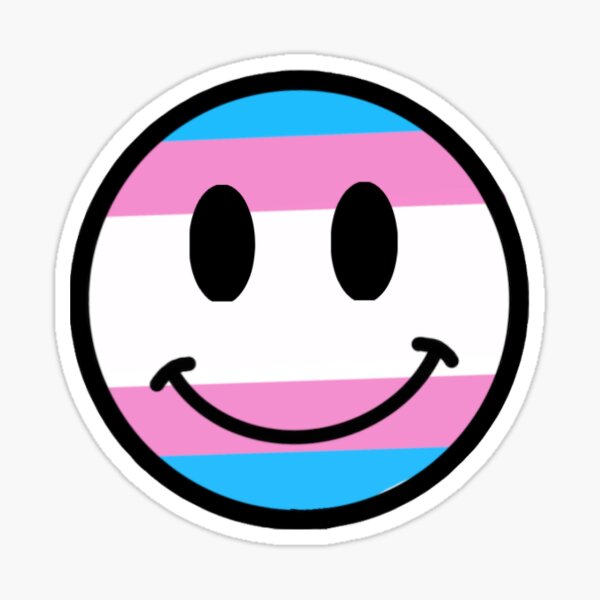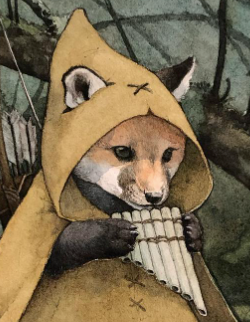It's for the page on 'Chaotic Good.' The use of freedom here made me think of the way freedom is bandied about by reactionaries. Because d&d is relevant right now, the lib energy of d&d, and the way we love to look at our world through pop culture, I immediately realized libertarians and radlibs see themselves as the chaotic good type. They get to be pro individualist capitalism and they get to pretend they could be the good one with it.
But when seen through this subtype of chaotic good, good before freedom, you see the way their understanding of 'good' is held back by wanting to protect rights.
It's just funny to me how libs who want to protect something like free speech are actively prioritizing that over the good for others. Like they actively know it's not good to let people just say something offensive, but they should just have the right anyway.
It's something that I appreciate in leftist spaces. I'd rather have a content filter or spoiler tag over slurs/fucked up images. It's not the best system, but Hexbear is one of the few places I feel safe talking and it's within a community that also excludes bigots.
I dunno. What do people think about the Character Alignment chart and its applications to morals and philosophy? Does something like that help you better conceptualize politics? Where do you think the liberalization of character alignment hurts society most?
Also, since I'm high, I'm also willing to answer questions. And I feel chatty. Will also do requests for short pieces of writing, creative writing advice, stories, opinions, or whatever.
Haven't been on tvtropes in a while, I'm sure it's full of lib stuff. I read a huge amount of it when I had a low energy tech support job.
The D&D alignment chart has always been kinda silly, like a fantasy version of the two axis political alignment chart, but with even more shenanigans. I think we've all seen absurd applications of the alignment system to justify a particular player or GM's whims. Especially with the GM, the universe twists to ensure their version of "good" was, in fact, the correct choice.
I think D&D has always been pretty lib, especially when dungeon crawlers and oppositional GMs were the way to go.
Of course, this doesn't prevent anyone from making their communist goblin commune in-setting and in-rules.
I hadn't even considered that the 'good' in (alignment)-good was defined by the dm. I thought it was just a vague term that everyone agreed on. I didn't think about how a player could really differ with that interpretation.
I mean, I can imagine a minor spat occuring with a player from here stealing some bread for some poor orphans and the GM disagreeing because stealing bad.
(though, that said, mid-game adventurers are fabulously rich and powerful by the standards of the setting and could fix poverty in every town they encounter with their goods gained from raiding and looting, though idk how rewards scale with level anymore. I haven't played 5th, only really 3.5 and 4)
They're only that rich and powerful because only like one in every 500 GMs bother to make their players deal with weight restrictions on gold coins, which are supposed to be ten coins to a pound. On top of the fact that the weight restrictions themselves are stupendously generous. A character with a stregth score meant to reflect an average person (9ish-11ish) has a weight carrying limit of between 135-165 pounds. That's more than double the weight of what would be considered a very heavy long distance trekking backpack.
Yeah, we tried to enforce weight limits a couple of games, but as it turns out most people hate book keeping. Most games I play in barely track ammunition, let alone currency (obvs a modern setting has different weights for currency). I could see a D&D party starting their setting's first bank so they can issue paper currency to keep the value of all of their loot.
Strength score is extremely silly though the average score represents maybe a modern person but it often takes place during medieval times when people had to do more physical labour so the average strength score would probably be 12-14, and it completely breaks when you reach higher scores, I'd have a strength score of 20 based on my lifts, actually strongmen would have strength scores of 30+, at the end these systems were originally designed by wargaming nerds that wanted to make stuff that'd be fun.
An entire party of adventurers are cursed by their gods for being apathetic to the suffering poor around them.
RIP cleric losing powers because they left a town without giving silver coins to all the poor.
Most of my groups are pretty on board, except this one player who was annoyed that this post-scarcity UN-alike was too communist. He was a piece of shit.
What does TV tropes have to say about D&D alignment charts?
https://tvtropes.org/pmwiki/pmwiki.php/Main/CharacterAlignment
Lots actually. There are several ways that they apply character alignments. The picture for this post is just one variant of Chaotic Good and the page holds several examples of the different variants seen in media.
It's actually a really educational site when you let yourself explore.
I wish I had access to it in highschool. I would have done way better at highschool english
I got kinda shafted because I wasn't allowed to watch TV or movies or vidya games, and I didn't listen to music. A huge amount of text analysis is comparison to other texts and various artistic languages. That said, I also hated high school essay writing.
In fifth grade, a couple of kids at my school had a Zelda Club where you couldn't talk to them if you didn't have or play Ocarina of Time for the N64. I'd have used that shit to get into that club and realize it was stupid way earlier.
It sucked being excluded from the media conversation by strict family or growing up poor.
I could write essays for days but I hated them so much. It just felt too much like writing what they wanted me to write.
I mean, what else do kids talk about? I was excluded from a lot of playground conversations because I hadn't watched pokemon that morning or Southpark the previous night. The lessened as I got older and people talked about relationships more, something else I'm pretty bad at.
Only correct leftist alignment chart:
LG: :blushing-engels: :ritzy-marx: The history of all hitherto existing socialist bromances has been a history of findom.
NG: :stalin-gun-1::stalin-gun-2: Can't make an omelette without breaking a few eggs.
CG: :JB-shining-aggro: The crimes of this guilty land canot be purged away but with blood.
LN: :galaxy-brain: Updoots to the left!
TN: :centrist: There is zero difference between good and bad things actually.
CN: :so-true: Tesla proves we can just innovate ourselves out of climate change!
LE: :liberalism: Open Biden!
NE: :scared-fash: wdym "turned upside down?"
CE: :bolso-pain: And then they just take the poop out through the nose, simple as.
Alignments are among the worst D&D ideas so of course that's the part that became huge, latched on to many non-D&D systems and is known by everyone even those who don't know what a tabletop game is
I think most people have always misunderstood the alignment chart. Lawful vs chaotic, in my understanding of it, isn't about following the law vs breaking it, it's about having a moral code vs doing what feels right. It makes sense for paladins to be lawful because they have a religious doctrine to follow, not because they follow the laws of the land. A rogue could also be lawful if they only steal from the rich. A chaotic character wouldn't have a moral code, and their judgement would change based on the situation they're in.
I also think the good vs evil is never really implemented properly because DND is a fantasy about being heroes. Everyone will want to be good, and most quests will revolve around the party helping people. I think the alignment chart needs to be done away with in favour of a group of values that every character needs to choose, and their commitment to serving those values vs serving their own needs.
Lawful vs chaotic, in my understanding of it, isn’t about following the law vs breaking it, it’s about having a moral code vs doing what feels right.
Sometimes its supposed to be that. More often it's much more general, about your literal alignment to the cosmic forces of order vs chaos. A fey creature isn't chaotic because it does what it feels like, it's chaotic because that is the type of creature it is. Just like a human is a mammal, and a biped, a fairy is chaotic.
When it is decoupled from the cosmology and turned into a matter of personal choices / morality it loses any coherence it had.
The D&D alignment chart was Gygax trying to reconcile the Catholic derived morality of Tolkein's works with Michael Moorcock's anarchist worldview (those two being the chief fantasy authors he was pulling inspiration from for DnD)... which is why it's almost completely useless as any sort of lens to view the world.
Tolkein was writing children stories for children, then a grand re-imagined English mythology- of course Good(tm) and Evil(tm) exist, with no shades of grey. But what is good and what is evil? Whose good? Whose evil?
Moorcock's cosmology of Order vs. Chaos is a direct criticism of that kind of religious dogma, in fact his work was often a direct criticism of Tolkein's work in-and-of itself. Order (those who uphold Good(tm) )means Inquisitors, Crusaders, Stormtoopers- the heroes of Tolkein's work (to be fair to Tolkein I don't think he meant it that way, but it's the way it pans out if you look at it long and hard enough). Moorcock's themes came down to "No Gods, No Masters."
These are two diametrically opposed ideological viewpoints, one a very pointed criticism of the other. So of course Gygax's big-brain idea was to make them the X and Y axis on a chart.
If you're using the chart as a tool to help you conceptualize abstract ideas- sure, go for it! Lord knows we all need some help wrapping complex ideas into things easy to understand for normal people. But just remember the limitations of it, that it's ultimately just a toy to help people build toy models of worlds to play in, not a realistic model of this world.
40k stole Chaos from Moorcock (that's where we get the eight pointed star from), but I kinda wish they kept the morally ambiguous chaos instead of the rar-rar evil stuff. You know, like Khorne is the god of war, but also the god of courage, honour, etc. Obviously, the Imperium are still space fascists. 40k didn't really inherit a real throughline on "order" as opposition to Chaos (except a very occasional reference). And really, having centralised gods is antithetical to chaos anyway, so 40k winds up being a mixed bag.
(also warhammer fantasy, which no one has heard of)
So what you're saying is DnD needs Tolstoy to balance the contradictions out
Alignment is kinda weird when you look at it through a more materialist lens. Like if you drop me into a mideval setting, obviously I'm going to be chaotic because I'm going to be challenging norms all over the place, but if you drop me into FALGSC then I'm probably not gonna see a lot of reason to make waves. These differences become apparent if you take the official D&D alignment quiz, which assumes a fantasy context and has questions like, "Your parents have arranged a marriage for you with someone you dislike, how do you respond?" to determine whether you're lawful or chaotic. So if we can drop a character into different settings and they'll come out with different alignments, then it seems like alignment is more about describing a character's relation to the world around them.
I think alignment is ok-ish but only if it doesn't get in the way of organic and realistic development. A LG paladin might find themselves facing a tyrannical regime that they feel their code compels them to fight, and that might involve hit-and-run tactics or morally questionable acts or aligning them with more chaotic actions, and they might spend the next decade performing more chaotic acts than lawful ones, so then, are they still lawful? Maybe, maybe not, but one thing's for sure, nobody should be like, "Oh sorry, fighting against authority isn't something my character would do, they're lawful," like really, all authority?
interesstingly for a lot of human history freedom meant the ability to do good. As being kind was assumed to be the apex of human nature and rationality and freedom was defined as acting within your nature unhindered.
freedom as in do whatever you want would have been considered to make you less free as someone who had a habit like gambling addiction would have been considered enslaved by that habit
William Tenshend Extremist written on dozens of birthday party invitations because a wine mom couldn't help herself.
Also I'm hoping I can flush out the other fans of TVTropes so we can feel less cringe together
I used to read through it to pass time about 5+ years ago. I just liked seeing the way different things were categorized and referenced, etc. But ultimately it is also Joseph Campbell territory in a lot of ways. The deconstruction of story and narrative into a collection of tropes is ultimately kind of alienating to me from the experience/reception. If you get too wrapped up in IDing tropes while experiencing a narrative, you quickly start to distance yourself from the actual context and depth of that complete narrative/media. That might be helpful if the story is just shoddy tropes stapled together, but it can destroy immersion in a good story too. I guess you could compare it to fan service in a franchise. It's not good storytelling, but it really feels good to all the dorks that ID it. 'I see what they did there' inside joke lols. Another comparison would be stereotyping. Once you have internalized the tropes, it's easy to reflexively do stereotyping of tropes even if they only sort of match up. Much like how an AI trained on racist datasets turns out to be racist. It's just trying to associate what it knows from the data is has been given.
As long as you don't internalize it too much, I don't think it's so bad.
There's this concept that I vaguely recall reading about around the time I used to click around TVT. The theory of database consumption.
translated into English as Otaku: Japan’s Database Animals (2009), cultural critic Azuma Hiroki develops a philosophical and historical analysis of contemporary media consumption in Japan https://jmpc-utokyo.com/keyword/database-consumption/
In contrast, Azuma proposes a mode of consumption to gain access to the “database” of elements that make up the work. Particularly among fans of manga, anime, and games, as well as novels featuring manga/anime characters, Azuma highlights a practice of breaking works down in terms of elements, which trigger moe, or an affective response. The elements are often aspects of character design, but they can also be patterned voices and stories. In general, rather than narrative, Azuma argues that what is important today is the database of elements, which can be mixed and remixed to create new works and trigger moe.
There is no need for a grand narrative in this database consumption, or in the consumption of the database of affective elements. The database is, in many ways, a “grand non-narrative”
Consuming databases, not narratives. This is a very different mode of social narrative interaction from classic storytelling in many ways. So TVT is like a meta database of narrative concepts. Which also happens to reinforce this non-narrative analysis of narratives. A story is not a whole anymore, and it becomes instead a collection of connected tropes.
Someone else read Database Animals!
What was scary prescient in the work was how it presages our current superhero pop-culture: his central thesis was that people who've orientated their lives around media consumption don't want narratives that challenge them in any way, just renewed dopamine hits of nostalgia, and as such it didn't so much matter what quality the narrative was but how it took familiar elements and rearranged them. Of course he was talking about anime and manga (easiest example: look at the character designs for the
threefour different Love Live shows) but now you can say the same thing about the MCU- compare Iron Man 1 Guardians of the Galaxy 1 to Dr. Strange 1, or heck- just movies like The Force Awakens.
I like that. I like what you wrote a lot. About how you view chaotic good, how you see the connection with other media, and helping me realize that I can use this in a form of casual talk. I think sometimes I get way too technical when I talk about theory and maybe this could help me not overwhelm people open to leftism.
You ever see the alignment chart where the put the alignments on the alignment chart? Chaotic good was the most lawful good alignment. Similarly lawful good was chaotic neutral. Lawful evil was mostly neutral good. I think I am remembering that right.
I can't believe that people use the Alignment Axis as anything more than a funny game thing. It somehow means even less than the political cum-piss, which itself is like, a spoonful of real political theory mixed into gallons and gallons of urine (libertarian™ urine!)
I've heard people describe themselves as chaotic good. But to them it meant 'I'm a chill guy but if you mess with my family, I'll go beast mode.'
I mean, I think its fine as an equivalent of astrology signs, or MBTI. Which is to say, its very 'vibe' based, and I think really starts breaking down if you dig into it.
But some people seem to get really emotionally invested. Like, I remember fucking flame wars over "Is Batman Lawful Good or Chaotic Good?"
Its a silly game thing. He's been all of them at different points depending on the 'vibe' of how you want to interpret alignment and batman.







